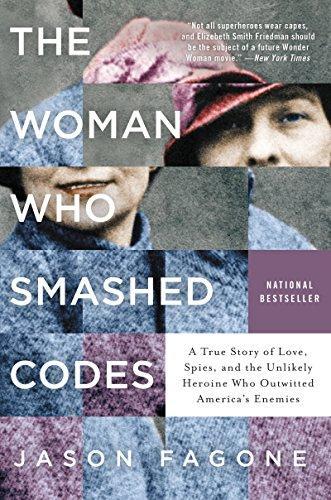Review of "The Woman Who Smashed Codes: A True Story of Love, Spies, and the Unlikely Heroine Who Outwitted America's Enemies" on 'Goodreads'
3 stars
A fair and interesting account of the two figures who laid the groundwork for wartime cryptanalysis and cryptography in America: Elizebeth and William Friedman. Without these two unusual characters, for all their own personal flaws, both World Wars likely would have ended quite differently....though the NSA also might not have been founded. A mixed legacy to be sure, fitting the somewhat mixed lives they led.
It's an interesting story full of intrigue, but unfortunately the author of this book occasionally seems to forget that, feeling the need to try to artificially inject interest by reaching for bizarre metaphors (comparing the act of decryption as opposed to simple literary analysis as reaching in and ripping words apart, leaving your "hands red and bloodied with the letters, in one example).
Still, it's a fascinating read, and a case of finally giving credit where it's properly due, despite the long-successful efforts of others …
A fair and interesting account of the two figures who laid the groundwork for wartime cryptanalysis and cryptography in America: Elizebeth and William Friedman. Without these two unusual characters, for all their own personal flaws, both World Wars likely would have ended quite differently....though the NSA also might not have been founded. A mixed legacy to be sure, fitting the somewhat mixed lives they led.
It's an interesting story full of intrigue, but unfortunately the author of this book occasionally seems to forget that, feeling the need to try to artificially inject interest by reaching for bizarre metaphors (comparing the act of decryption as opposed to simple literary analysis as reaching in and ripping words apart, leaving your "hands red and bloodied with the letters, in one example).
Still, it's a fascinating read, and a case of finally giving credit where it's properly due, despite the long-successful efforts of others (like J. Edgar Hoover) to wield confidentiality as a means of claiming credit themselves.

